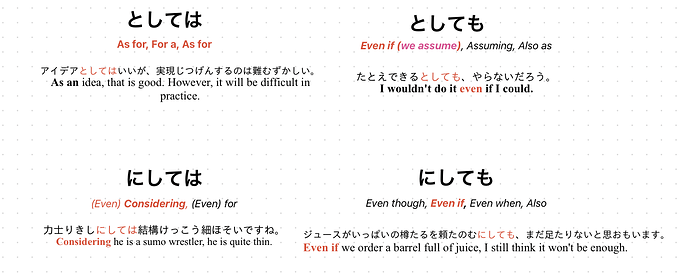even if (we assume)
assuming
also as
Structure
- Verb + としても
- いAdj + としても
- なAdj + (だ) としても
- Noun + (だ) としても
 Sometimes older speakers add だ for emphasis
Sometimes older speakers add だ for emphasis
creating としてもだ.
A としても B - Even if we assume (hypothetical) A, it would still be B.
[ としても → implies even if something is (already) the case・ にしても → implies even if something becomes the case*]
[The end state/resultant state (either static or dynamic) is what determines which is used]
*There are some exceptions



